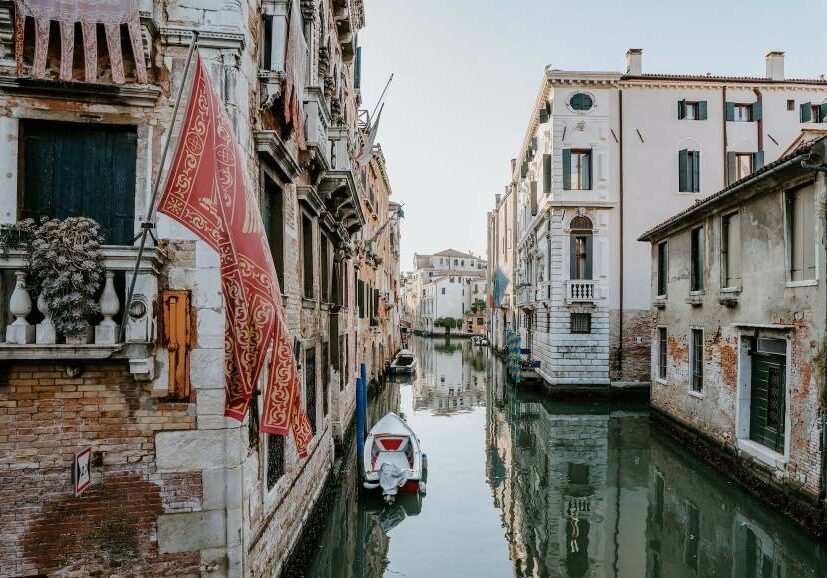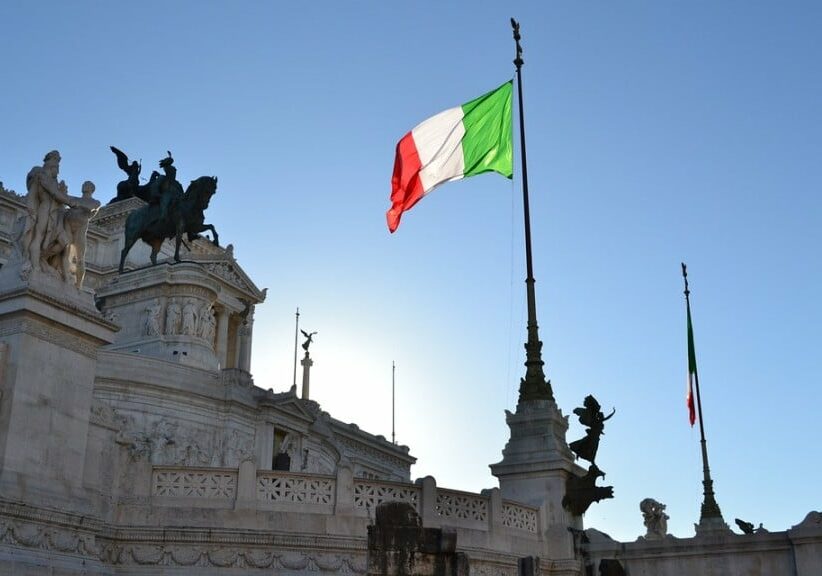Obtaining an Italian passport grants you the ability to live, work, and study not only in Italy but across the entire European Union. Whether you’re looking to settle in Italy or explore other EU countries, becoming an Italian citizen offers numerous benefits. This guide will walk you through the requirements and steps to obtain Italian citizenship and secure your Italian passport in 2025.
The Value of an Italian Passport

Perhaps the most significant advantage of holding an Italian passport is its inherent visa-free access to all European Union (EU) countries and the freedom to move around member states of the Schengen Area without restrictions on time, provided they formalize their stay.
The EU passport gained when obtaining Italian citizenship makes you an Italian and an EU citizen. Holders can immerse themselves in Europe’s diverse cultures as official residents indefinitely. Should they wish to apply for residency in any EU member state, the application process is merely a formality.
Besides visa-free access, having this passport can facilitate your employment prospects across the EU. You can work for any employer without requiring them to sponsor a work permit or endorse you. Moreover, if you are interested in continuing your education in Europe, possessing an Italian passport could make it easier for you by lowering tuition fees, providing access to greater scholarship opportunities, and expanding your education options.
Italian Passport Requirements
Below, you’ll find Italian passport rules. Italian passport requirements for foreigners are different than for those who were born in Italy.
Italian passport by descent

It makes Italy one of the easiest countries to obtain citizenship as, provided that a child born in Italy or overseas can prove their ancestors were Italians, they can apply for an Italian passport by descent.
The legal documents applicants can use to prove Italian lineage are the birth certificate, marriage certificate, or death certificate of their ancestor.
If the documents of their ancestor are not in Italian, they must be notarized and legally translated.
Italian passport by birth
Citizenship at birth is the most common way a child acquires an Italian passport. The Italian Ministry of the Interior also places citizenship by birth under the rule of citizenship by descent. A child born in or outside Italy with an Italian great-grandfather, Italian parents, or any other family member who is an Italian citizen can claim an Italian passport. Provided you can prove you have an ancestor with Italian citizenship, you have the right to an Italian passport by birth.
Children with Italian birth certificates born in Italy and whose parents are unknown do not need to present vital records to prove they have an Italian ancestor in order to obtain an Italian passport.
Italian passport by naturalization
An Italian passport by naturalization is available to foreign permanent residents with ten years of residency in Italy. After living in Italy for five years with a long-term residence permit, foreign nationals can apply for a permanent residence permit.
After an additional five consecutive years of domicile in Italy, foreigners are eligible to apply for Italian citizenship. Some prerequisites exist in order to qualify for Italian dual citizenship, including:
- No more than ten months outside the country in the five years before applying for an Italian passport by naturalization
- A minimum annual income of at least €8,264 ($9,055)
Italian passport by marriage
The Italian law for citizenship by marriage reduces the time of naturalization for foreign spouses of Italian citizens to two years if they live in Italy. Marriage between a foreigner and an Italian citizen living outside Italy provides eligibility for Italian citizenship and an Italian passport after three years–your local Italian Consulate will have the relevant time periods.
The Italian government also reduces the timeframe to be eligible for Italian dual citizenship if the Italian spouse and their foreign partner have minor children. Foreigners and Italian citizens who are married and live in Italy with minor children can apply for the foreign spouse’s second citizenship in one year. If they reside abroad, they can apply for Italian citizenship and a passport after 18 months of marriage.
Other ways to obtain an Italian passport
An adopted child with Italian parents has the same rights to obtain Italian citizenship as a child born in Italy who can claim citizenship by Italian descent. A foreign national in service of the Italian government is also eligible to become an Italian citizen after five years of service.
What are the required documents to apply for an Italian passport?
The following documents are required to apply for an Italian passport:
- A valid travel document or national ID card [e.g., driver’s license or Electronic Identity Card (eID card)]
- An Italian passport application form provided by the Questura (local police headquarters) or by the nearest consulate in your home country
- Certified copies of your birth certificate with a sworn Italian translation
- Certified copies of your marriage certificate with a sworn Italian translation (if applicable)
- Two passport-size photographs with a white background
- A Letter of Consent (if you are applying for minor children’s passports)
- The passport fee
- You’re expired Italian passport (for renewal)
Italian Passport Application Process

Foreign nationals living in Italy with Italian dual citizenship can apply for an Italian passport at their home country’s Italian Embassy or Consulate or the Questura (local police headquarters) in Italy.
The main Questure in Italy are Milan, Rome, Florence, and Naples. You must book an appointment for a passport interview with one of the above-mentioned Italian Consular Offices, where they will verify your identity.
With the introduction of electronic passports, Italian Consulates now require fingerprinting for passport applicants. The biometrics and documents must be submitted to the same consulate conducting the passport interview.
Important notes:
- Minors under twelve are not required to submit fingerprints to be issued a passport.
- Minors under twelve are not required to attend an interview at an Italian Consulate, and their passport applications can be sent via post.
- Immigration law in Italy requires Italians applying for a passport for their children under 18 to obtain a formal Letter of Consent agreement from their spouse.
- A person with a disability, an expecting mother, and people over 70 do not need to arrange an appointment with the Italian Consulate in their home country.
Italian Passport Processing Time
An Italian passport application’s processing time and issuance is typically between one to six weeks. An emergency passport can be received within one week. Passport renewals generally have a faster processing time. You can also expect speedier processing for applications submitted to a Questura in Italy.
Italian Passport Cost
The standard fee for an Italian passport is €116 ($127) [€42.50 ($46.57) for the passport and €73.50 ($80.54) for the administration fee]. The fast-track fee is €50 ($54.79). Italian passport cost can vary depending on the country and the overseas Italian Consular Office.
Italian Passport Renewal
The Italian passport is valid for 10 years for adults, 5 years for minors aged 3-18, and 3 years for children under 3. It’s crucial to do an Italian passport renewal before it expires to maintain uninterrupted travel and visa-free access to over 180 countries.
Passport renewal is straightforward: apply at an Italian consulate or in Italy, providing the necessary documents, including your current passport, ID, and photos. Processing times may vary, so it’s advisable to renew well in advance of the expiration date. Keeping your Italian passport current ensures seamless international travel and residency.
How Can Global Citizen Solutions Help You?
Global Citizen Solutions is a boutique migration consultancy firm with years of experience delivering bespoke residence and citizenship by investment solutions for international families. With offices worldwide and an experienced, hands-on team, we have helped hundreds of clients worldwide acquire citizenship, residence visas, or homes while diversifying their portfolios with robust investments.
We guide you from start to finish, taking you beyond your citizenship or residency by investment application.

Frequently Asked Questions about Italian Passports
How can you get an Italian passport?
To get an Italian passport, you first need to obtain Italian citizenship. This can be achieved through Italian family members (on the paternal line or maternal line), marriage to an Italian citizen, being born in the Italian Republic, or naturalization after ten years of residence in Italy.
Once Italian dual citizenship is obtained, you can apply for an Italian passport at the Italian Consulate in your home country or a Questura (local police headquarters) if you live in Italy.
How do you renew an Italian passport?
You can renew an expiring/expired Italian passport by applying for a new passport at the Italian Consulate in your home country or a Questura if you live in Italy. You must also present the following documents:
- Your expiring/expired passport
- Your national ID [e.g., driver’s license or Electronic Identity Card (eID card)]
- Passport photos taken within the last six months
How strong is an Italian passport?
The most recent Global Passport Index has ranked the Italian passport as one of the world’s strongest. Italian passports provide incredible international travel privileges, with visa-free and visa-on-arrival access to 174 countries worldwide.
Once Italian citizenship is obtained, citizens also acquire the right to borderless travel in the Schengen Area and the right to settle in any EU member state. Italian passport benefits can also be passed on to future generations through the Italian law for citizenship by descent.
Can you obtain an Italian passport by Investment?
Acquiring a passport by investment is not an option in Italy. However, a person can gain residency in Italy through an investment immigration program like the Italy Golden Visa. This residency by investment program provides a renewable residency permit, which investors can renew until they’re eligible for permanent residence.
After ten years of residency (the last five as a permanent resident), holders can apply to become Italian citizens. Once citizenship is obtained, they’ll be eligible to apply for an Italian passport.
Does Italy allow dual citizenship?
Italy has no restrictions on dual nationality. Many Italian passport holders also have an Australian passport or current passport from other nations. Whether you’re a natural-born Italian citizen or obtained Italian citizenship through naturalization, you are free to hold two passports or even more.
Can I live in the USA with an Italian passport?
There are no restrictions on where you can live with an Italian passport. In fact, you can acquire an Italian passport as a dual national at the Italian Consulate in your home country. You can live in the US, Australia, the UK, or any other country as an Italian passport holder.


